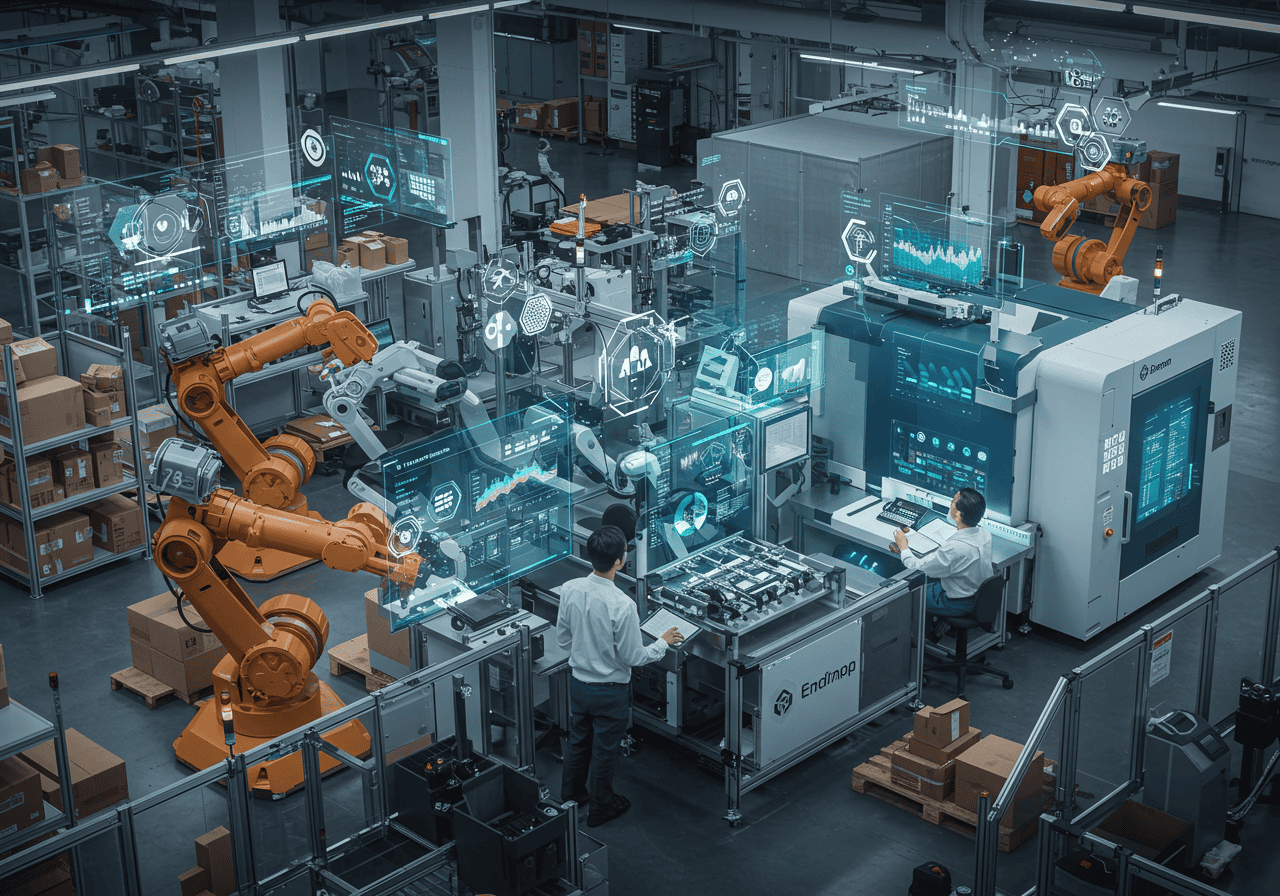The Future Of Energy: AI’s Impact On Renewable Sources And Smart Grids
As we stand at the threshold of a new era in energy management, the fusion of artificial intelligence (AI) with renewable energy sources heralds a transformative shift in how we generate, distribute, and consume power. This article delves into the innovative realm where AI meets renewable energy, offering a glimpse into a future powered by intelligent grid systems. As we explore the synergy between AI and sustainable energy sources, we unveil the potential of smart technology in revolutionising our approach to energy management, making it more efficient, reliable, and environmentally friendly. The journey into this brave new world of AI-driven energy solutions is not just about technological advancements; it’s a pivotal step towards a sustainable future, redefining our relationship with energy in profound ways.
Emergence of AI in the Energy Sector
In recent years, the energy sector has witnessed a significant transformation, primarily driven by advancements in artificial intelligence. AI’s emergence in this field is not just a fleeting trend but a fundamental shift towards more efficient and intelligent energy management. By leveraging AI’s capabilities, energy companies are now able to predict demand, optimise supply, and enhance grid stability. This section will delve into how AI is rewriting the rules of energy production and distribution, setting the stage for a more responsive and adaptive energy system.
AI-Driven Energy Solutions for Renewable Sources
Renewable energy sources, such as solar and wind power, are pivotal in the transition towards a more sustainable future. However, their integration into power grids has been a complex challenge, primarily due to their intermittent nature. This is where AI steps in as a game-changer. Through advanced analytics and machine learning algorithms, AI enables more precise forecasting of renewable energy outputs, ensuring optimal utilisation and seamless integration into the power grid. This section will explore the nuances of how AI is smoothing the path for renewable energy, making it a more reliable and viable option.
Integrating Renewable Energy with Smart Grid Technology
The integration of renewable energy sources into existing power grids is a critical step towards achieving energy sustainability. AI plays a pivotal role in this integration, facilitating the development of smart grids. These intelligent grids, equipped with AI algorithms, can efficiently manage and distribute renewable energy based on real-time data and predictive analytics. This section will focus on the technicalities and benefits of merging renewable energy with smart grid technology, highlighting AI’s role in creating a more resilient and efficient power system.
Advancements in Sustainable Energy Management through AI
Sustainable energy management is at the heart of the transition to greener energy practices. AI technologies are at the forefront of this movement, offering innovative solutions for managing energy consumption and reducing environmental impact. From optimising energy use in buildings to predicting maintenance needs in power plants, AI’s applications in sustainable energy management are vast and varied. This section will shed light on these applications, illustrating how AI is not just an enabler but a catalyst for sustainable energy practices.
Challenges and Future Prospects in AI-Powered Energy Systems
While AI’s integration into the energy sector is laden with opportunities, it also presents its own set of challenges. Issues such as data security, privacy concerns, and the need for substantial investments in technology infrastructure are some of the hurdles faced. Despite these challenges, the future of AI in energy management is bright and promising. This final section will discuss these challenges while also casting a look at future prospects, including emerging technologies and potential advancements in the field of AI and energy.
Conclusion
As we venture further into an era where sustainability is paramount, the integration of AI in energy management emerges as a beacon of innovation and efficiency. This journey into harnessing AI for renewable energy integration and intelligent power grids is not merely about technological advancements; it’s a crucial step towards a future where energy is managed wisely, sustainably, and with foresight. The potential of AI in transforming our energy systems is vast, and as we continue to evolve and adapt these technologies, we edge closer to a world where energy management is as smart as the technology that powers it. Let’s embrace this future, and actively contribute to the development of smarter, more sustainable energy systems.
Call to Action: Join the movement towards a sustainable future. Explore how you can contribute to and benefit from AI-driven energy solutions, and be part of the revolution in energy management.
Frequently Asked Questions (FAQs)
- What is the Role of AI in Renewable Energy Integration?
- AI significantly enhances the integration of renewable energy sources like solar and wind into the power grid. By predicting energy output and demand, AI algorithms enable a more efficient and stable energy flow, ensuring renewable energy is used optimally.
- How Does AI Contribute to the Development of Smart Grids?
- AI contributes to smart grid development by facilitating real-time data analysis, predictive maintenance, and efficient energy distribution. This leads to improved grid reliability, reduced operational costs, and better integration of renewable energy sources.
- Can AI Improve Energy Sustainability?
- Absolutely. AI improves energy sustainability by optimising the use and distribution of renewable energy, reducing waste, and enhancing the overall efficiency of energy systems, leading to a lower environmental impact.
- What are the Challenges Faced in Implementing AI in Energy Systems?
- The main challenges include the high cost of technology, the need for extensive data for AI algorithms, concerns about data security and privacy, and the requirement for skilled professionals to manage and interpret AI systems.
- What Future Advancements Can We Expect in AI-Driven Energy Systems?
- Future advancements may include more sophisticated AI algorithms for better energy prediction and management, enhanced integration of various renewable energy sources, and the development of AI-powered autonomous energy networks.
Additional Resources:
Smart Grid Technology:
- Grid Beyond: “The Ultimate Guide to Smart Grid Technology” – Explains the concept of smart grids, their benefits, and how AI is shaping their development. https://www.researchgate.net/figure/Energy-communication-and-data-flow-in-smart-grids_fig1_334099057
- Department of Energy (DOE): “The Smart Grid” – Offers the US government’s perspective on smart grids, including their role in enabling clean energy integration and grid modernization. https://palmetto.com/learning-center/blog/how-solar-power-and-the-grid-work-together
- Google AI: “AI for Earth” – Showcases Google’s AI projects addressing climate change and sustainable energy challenges. https://datainnovation.org/2023/08/10-bits-the-data-news-hotlist-423/
Share this content:




Post Comment